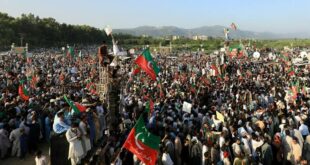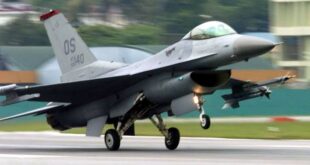
Pakistan and Afghanistan are engaged in a new diplomatic spat over Jaish-e-Mohammed (JeM) chief Masood Azhar.
Pakistan had reportedly written a letter to the Afghan authorities regarding the presence of Maulana Masood Azhar, the founding head of the banned JeM in Afghanistan.
The purported letter maintained that Masood Azhar was likely to be in Nangarhar and Kunhar areas of Afghan province. Islamabad reportedly demanded that the defunct JeM chief must be located and handed over to Pakistan.
Yesterday, Afghanistan’s Taliban government denied reports about the presence of Masood Azhar in the war-torn country, claiming that such terrorist organisations “can operate” on Pakistan’s soil – and even under “official patronage.”
The Taliban-led interim Afghan government spokesperson Zabihullah Mujahid made the strongly-worded remarks after the Pakistani media reported about Masood Azhar’s presence in Afghanistan. Mujahid also rejected receiving any letter from Pakistan. The Taliban government spokesperson said he had seen the news in the media “but this is not true. Nobody has made such a demand from us.”
He added: “Jaish-e-Mohammad chief is not in Afghanistan. Such organisations can operate on Pakistan’s soil – and even under official patronage. We’ll not allow anyone to use Afghanistan’s soil against any other country.”
Pakistan has banned the JeM which is accused by India of launching several terrorist attacks, including the Pulwama attack in February 2019, which brought Pakistan and India to the brink of a nuclear exchange.
The Pakistan-Afghanistan tension, although not new, has caught fire after three Pakistani soldiers were martyred as a result of an attack by the terrorists from the Afghanistan side this week. Pakistan forces responded accordingly and inflicted heavy losses on the aggressors.
The ugly reactions by the Afghan fans to the loss to Pakistan in a cricket match last week had created the initial damage.
Pakistan is yet to formally recognise the Afghan Taliban government. This stance contrasts with Pakistan’s position the last time the Taliban held power, in the 1990s, when it was one of the only three countries to recognise the group’s Islamic Emirate and the last to sever the connection. Islamabad’s hesitance to take the plunge this time around is primarily driven by the concern that no other government worldwide, including among Afghanistan’s other neighbours, has yet taken the step of recognition.
However, in policy pronouncements, in bilateral meetings and at multilateral forums, Islamabad is urging outside powers, particularly the US and its Western allies, to engage with the Taliban, lift economic sanctions, and supply Kabul with both humanitarian and economic assistance.
Pakistani policymakers warn that continued sanctions and freezes on donor assistance will result in the Afghan economy’s complete meltdown, worsening an already grave humanitarian. The Pakistani government and the diplomatic circles expect Afghanistan to cooperate with Pakistan for peace and stability in the region.
Islamabad has long been urging the Afghanistan government to stop attacks from its soil on the Pakistani people and military.
 Pride News Daily NEWS
Pride News Daily NEWS





